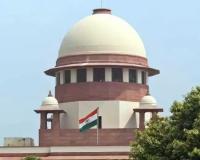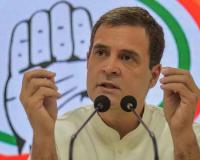Waqf case: Which are the 5 key petitions chosen for the main hearing?
The five lead petitions that the Supreme Court will hear against the Waqf (Amendment) Act, 2025, have been selected.

During the proceedings on Thursday, 17 April, the court observed that a large number of pleas — over 70 — had already been filed against the new Waqf Act and questioning its constitutionality, and more continue to be submitted almost daily.
Faced with this deluge of petitions, the bench — comprised of Chief Justice of India (CJI) Sanjiv Khanna and justices P.V. Sanjay Kumar and K.V. Viswanathan — finally admitted it was “impossible to deal with so many pleas”.
To avoid overcrowding the courtroom and ensure the time taken over hearing and judgement would not be dilatory, the court directed the petitioners to jointly select five petitions to be treated as the lead cases.
The remaining petitions will be treated as ‘intervention’ or ‘implementation’ applications.
The five selected petitioners are:
1. Arshad Madani
2. Muhammad Jameel Merchant
3. Muhammad Fazlur Rahim
4. Sheikh Noorul Hasan
5. Asaduddin Owaisi
All petitioners were expected to collaborate and reach a consensus on which petitions would be designated as lead cases. However, it remains unclear how this final selection was made.
The other petitioners include some prominent political names too — Manoj Jha of the RJD (Rashtriya Janata Dal), Mahua Moitra of the TMC (Trinamool Congress), Imran Pratapgarhi of the INC (Indian National Congress), Samajwadi Party MP Zia Ur Rehman Barq and AAP (Aam Aadmi Party) leader Amanatullah Khan.
The lawyers representing the petitioners include veterans Kapil Sibal and Abhishek Manu Singhvi, Amongst the selected five is AIMIM chief Asaduddin Owaisi, of course, who is himself a lawyer by training as well and one of the first to move the Court against the Bill — though he will be represented by Nizam Pasha.
Also arguing against the Act are Zulfiqar Ali P.S., Anas Tanweer, and advocate Vishnu Shankar Jain, who himself is a petitioner.
With the lead petitions now identified, however, only their respective lawyers will present the primary arguments when the case is heard next on 5 May. Lawyers representing the remaining intervention petitions may still participate when necessary, though.
In the earlier stages of the case, senior advocates such as Salman Khurshid, Kapil Sibal, Abhishek Manu Singhvi, Rajeev Dhawan and Hafza Ahmadi had represented various parties. Going forward, only some of them will retain prominent roles. Among the selected lead petitions, senior advocate Rajeev Dhawan will continue to play a key role as the counsel for petitioner Muhammad Jameel Merchant.
The court has also appointed three nodal counsels to coordinate proceedings. Advocate Ejaz Ahmed will serve as the nodal counsel for the petitioners, Advocate Kanu Agarwal for the government and Advocate Vishnu Shankar Jain for the intervenors collectively.
Advocate Vishnu Shankar Jain’s name stands out, in particular. In his bio on X (formerly Twitter), he has stated, “I want restoration of Kashi and Mathura.”
Notably, he also posted a tweet two days ago commenting on the Waqf law, which has drawn attention in the context of this case:
Waqf by user is a draconian concept. So many temples are demolished in this country. The is no concept in this country of temple by user. The present amendment protects a large sections of society from the arbitrary powers of waqf board by using this concept of waqf by user. — Vishnu Shankar Jain (@Vishnu_Jain1) April 16, 2025
Notably, the complainants are not all Muslims; there are Hindu and Sikh petitioners — such as Daya Singh, president of Gurdwara Singh Sabha, Gurgaon, who has inveighed that the Act infringes on the Sikh practice of religious charitable donations as well.
Now, of course, as the hearing continues, the question remains — amidst a few heartening statements for both sides from the Court, spotlighting both specific provisions that were cited as laudable and others that seem unequal or have “grave ramifications” — will the Waqf Act pass the legal challenge?










.jpeg)
